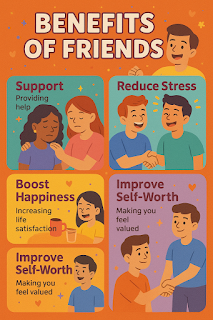A strong mindset, stable mood, and healthy financial habits are deeply interconnected. Research consistently shows that emotional regulation, daily routines, and cognitive patterns directly influence long‑term success, decision‑making, and wealth‑building behaviors. This article breaks down five proven habits that strengthen mental well‑being while also supporting financial growth - grounded in psychology, neuroscience, and behavioral economics.
1. Protect Your First Thoughts of the Day
The first minutes after waking are a neurological “prime time.” Your brain is in alpha and theta states, which makes it more receptive to suggestion, emotional tone, and cognitive framing.
Why It Matters
- Early‑morning thoughts influence mood, motivation, and decision‑making throughout the day.
- Positive morning practices (gratitude, prayer, affirmations) increase dopamine and emotional regulation.
Evidence
Research in behavioral psychology shows that emotional states strongly influence financial decisions, including spending, saving, and risk‑taking
Mindset patterns formed early in the day can shape how you respond to stressors and opportunities.
Practical Habit
- Start with gratitude, prayer, or a grounding affirmation.
- Avoid immediately checking your phone - it triggers stress and comparison.
2. Move Your Body to Move Your Mood
Even 2–5 minutes of movement can shift your emotional and cognitive state.
Why It Matters
- Physical activity increases blood flow to the brain, improving clarity and focus.
- Movement reduces cortisol, the stress hormone that interferes with decision‑making.
Evidence
Emotions strongly influence financial behaviors, including impulsive spending and avoidance of long‑term planning
Regulating your mood through movement leads to clearer, more intentional choices.
Practical Habit
- Stretch for 60 seconds.
- Take 20 steps.
- Roll your shoulders or do slow breathing with movement.
Small actions = big regulation.
3. Set One Clear Priority Each Day
Your brain performs best with simplicity. Overwhelm leads to procrastination, emotional fatigue, and poor decision‑making.
Why It Matters
- Focusing on one meaningful task increases follow‑through.
- Completing a priority creates a dopamine reward loop that builds confidence.
Evidence
Mindset plays a crucial role in long‑term financial success, often more than income or intelligence. People with clear priorities and consistent habits accumulate more wealth over time
Practical Habit
- Choose one “needle‑moving” task each morning.
- Let everything else be optional.
Small wins compound into confidence - and confidence compounds into wealth.
4. Practice Micro‑Positivity
Micro‑positivity refers to tiny, intentional moments that shift your emotional baseline - sunlight, a clean corner, a kind message, a grounding breath.
Why It Matters
- Small positive cues increase resilience and emotional stability.
- A regulated emotional state improves problem‑solving and long‑term planning.
Evidence
Emotional patterns influence spending, saving, and investing behaviors. People who cultivate positive emotional states make more intentional financial choices and avoid impulsive decisions
Practical Habit
- Open a window for sunlight.
- Clean one small area.
- Read one uplifting sentence.
- Send one kind message.
These micro‑moments shift your brain toward clarity and resilience.
5. Learn Something That Increases Your Value
Skill‑building is one of the strongest predictors of long‑term financial growth.
Why It Matters
- Learning improves cognitive flexibility and emotional resilience.
- New skills increase earning potential and opportunity awareness.
Evidence
Financial success is deeply tied to mindset, beliefs, and habits — not just income. People who invest in learning and self‑development build stronger financial outcomes over time
Practical Habit
- Read one page.
- Watch a 2‑minute tutorial.
- Listen to 5 minutes of a podcast.
Your mind is your greatest wealth‑building asset.
Final Thoughts: Your Mindset Shapes Your Future
Positivity isn’t pretending everything is perfect.
It’s choosing habits that keep you moving forward : calm, clear, capable, and confident.
A healthier mind creates a wealthier life.
Your habits shape your future.
And your next level begins with one small shift today.







